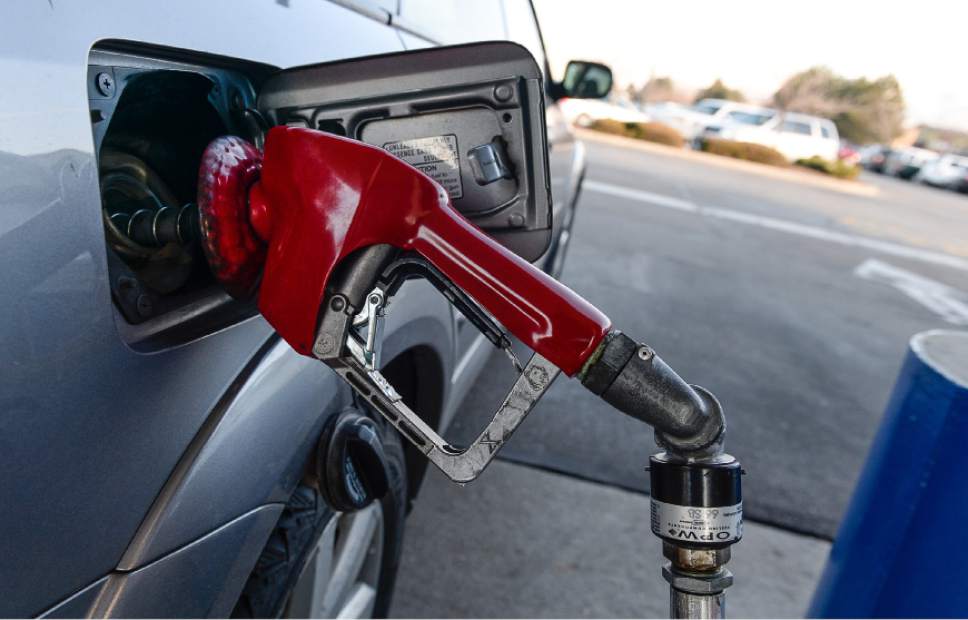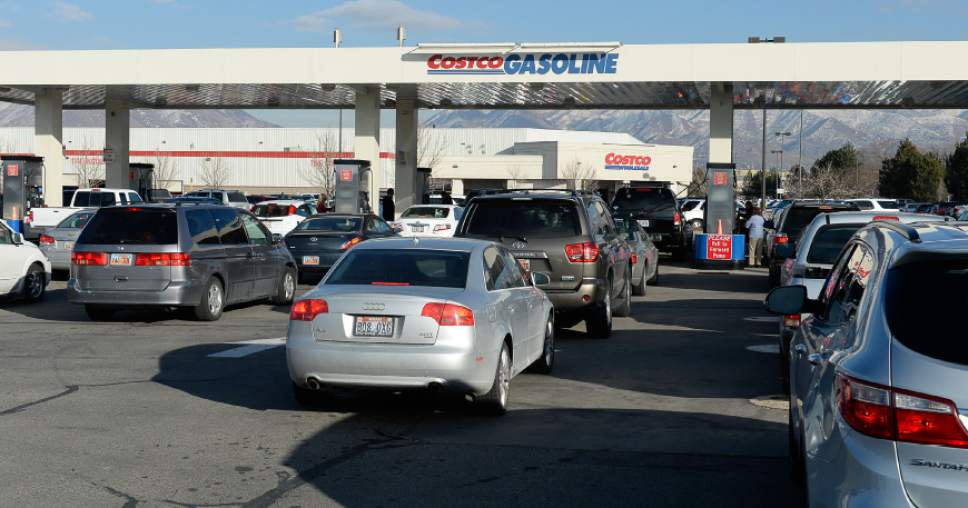This is an archived article that was published on sltrib.com in 2015, and information in the article may be outdated. It is provided only for personal research purposes and may not be reprinted.
The Utah Senate and House each passed different versions of how to raise or reform gasoline tax on Monday, while negotiations continue on a possible final compromise.
The Senate voted to increase gasoline tax by 5 cents per gallon this year, followed by hikes of 1 cent each year for four years — for a total of 9 cents a gallon. SB160 passed on a 20-5 vote, and now goes to the House.
Meanwhile, the House passed HB362 on an 51-22 vote. It would change the current cents-per-gallon tax into more of a sales tax.
It was changed Friday so that it could delay any tax hike for several years, allowing lawmakers to say they technically did not vote for a tax hike. But once that system begins, it could allow large, automatic increases in what drivers pay at the pump.
Under that bill, when the wholesale price of gasoline tax reaches $2.45 a gallon, the state would start imposing a 10 percent tax on it — and adjust it once a year. That initially would produce the same 24.5 cents a gallon as the current state gasoline tax.
Rep. Johnny Anderson, R-Taylorsville, the bill's sponsor, said last week that the price of wholesale gasoline is not expected to hit that $2.45 a gallon until 2025, which means a gas tax hike under his bill may come for another 10 years. But he said it could kick in earlier if gas prices rise faster.
Once the system starts, tax collected per gallon would rise with the price of gasoline, perhaps rapidly. The bill caps gas tax at raising to no more than 40 cents a gallon.
The House version also includes permission for counties to ask voters for a quarter-cent sales tax increase to help fund city and county roads and mass transit projects.
Lawmakers are pushing the changes because the current state gasoline tax of 24.5 cents has not been raised since 1997. The state also projects a shortfall of $11.3 billion through 2040 for priority transportation projects unless taxes are increased.
Sen. Kevin Van Tassell, R-Vernal, sponsor of the Senate bill, earlier proposed a 10 cent a gallon increase this year. He said switching to 5 cents now with more to come decreases the up-front costs, and brings more money later when it will be needed for future bridge projects.
Van Tassell and Rep. Johnny Anderson, R-Taylorsville, sponsor of House bill, said a compromise is in the works. But Van Tassell said a snag is that many senators oppose the quarter-cent sales tax increase, while the House is insisting on it.
The House also skirmished over that quarter-cent sales tax on Monday.
The bill proposes to give 0.1 cents of the increase in urban counties to the Utah Transit Authority for transit projects. Rep. Brian Greene, R-Pleasant Grove, proposed to take that away and give it to cities instead, which he said have greater need.
It would have been on top of another 0.1 percent they already would receive in the bill. It died on a voice vote.
Van Tassell and Anderson say the compromise being discussed would raise gasoline now by 5 cents a gallon — as proposed by the Senate — but use the new sales-tax-like system proposed by the House that would begin later.
Both say they like the idea and have found general support — but Van Tassell said senators are balking at the sales tax increase for cities, counties and transit.





